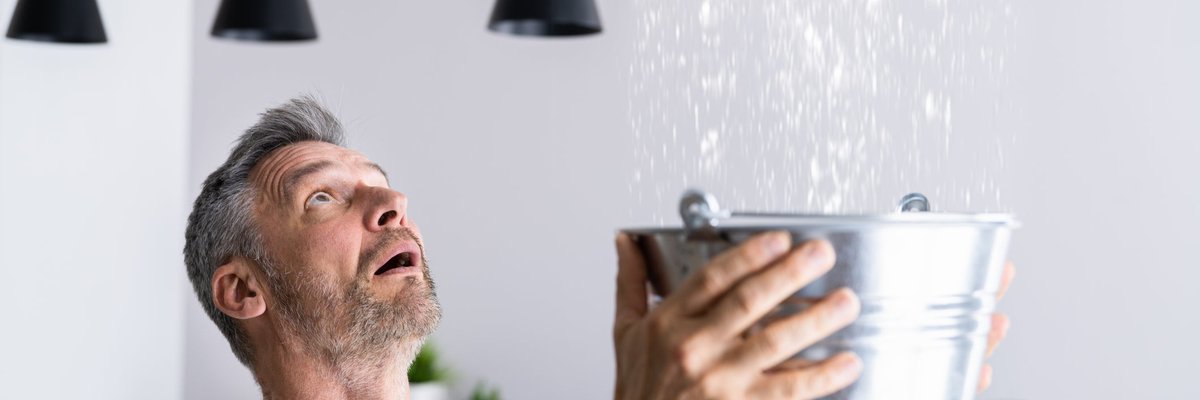These Horror Stories From Homeowners Show the True Importance of an Emergency Fund
An emergency fund is the surest way to protect one of your largest financial assets.
Sure, an emergency fund can help you get through a job loss or unexpected illness, but an emergency fund is also vital if you're a homeowner. That's because dealing with "surprise expenses" is part and parcel of owning a home.
The downside of homeownership
Motley Fool Money took to Instagram to ask people about some of the surprise homeownership expenses they've encountered. The responses received serve as a reminder of the financial issues -- large and small -- homeowners face.
Water issues
aldrichalicia shared: Within the first month of owning my home, we discovered a pretty bad water leak. It turns out the previous homeowners had put down new tile in the upstairs bathroom ON TOP OF THE OLD FLOOR and didn't add a second toilet ring seal under the toilet to account for the additional height, so toilet water was draining down our basement bathroom walls. Woof!
aueltzen added: When we moved to the mountains and went from city water to well and pump, as newbies, we should've asked the age of the pump and the depth of the well. $2k to swap a new pump last year. Luckily we avoided having to pay $15k to have a new well dug.
Homeowners association (HOA) surprises
ktrain5 shared: HOA special assessments! I purchased my condo in Feb. 2018 and in March 2018, the dues went up by $100 so we could replace the roof for our building.
timlwhite recalled: Front lawn got a bad fungus and ended up completely dying off -- had to completely replace it from scratch to avoid HOA fines!
Expensive property maintenance
rdeede wrote: When we bought a house in the suburbs, we thought all the land and green space would be great…Which it is. However, we never considered that all those trees would cost us money we didn't budget for. Whether it was treatments for bugs, removal of the dead one so they don't crash on our house, or just the time/money to do constant leaf cleanup has resulted in thousands of dollars every year just to maintain the trees on our property.
A flood of issues
marcelomedranosr wrote: Water heater burst and flooded condo. Central heating stopped working. Garbage disposal.
Don't get caught off guard by the expenses of homeownership
These homeowners are not alone. As homeowners, they can count on being continually "surprised" by expenses that should not surprise us at all. Perhaps it's universal, but each time our water heater breaks, tree roots interfere with our plumbing, or the basement springs a leak, we act as though we didn't see it coming.
Even if we don't know what will go wrong, we can count on something happening. Typically, a homeowner should expect to spend between 1% and 4% of their home's value on maintenance each year. That means if your home is worth $300,000, you should have somewhere between $3,000 and $12,000 put away to cover issues as they arise. If you have a lucky year and nothing needs to be repaired, that's awesome! That's money that you can roll over into next year's emergency fund.
Factors that come into play
Several factors come into play when it comes to how much you can expect to pull from your emergency savings account to cover issues, including:
- The age of your home. A newer home is less likely to have problems than an older house (although it does not always work out this way). Imagine a newly poured basement. When compared to an old, stone basement, the newly poured basement should do a better job of keeping water out during a downpour. Think about your house. How old are your kitchen appliances? How old is your furnace or water heater? The older the item, the less you should be surprised when it goes belly-up and the more you want tucked into your emergency savings account to cover repairs.
- Where you're located. Hailstorms, tornadoes, blizzards, and unrelenting heat can all do a number on your house. It's safe to say that homes in areas that experience extreme weather are going to run into more trouble than those in moderate climates.
- Maintenance. Suppose you're someone who stays on top of maintenance issues like changing air filters, cleaning ducts, getting rid of roots from old trees, and routinely checking your foundation and roof. In that case, you are likely to avoid some of the emergencies faced by those who forgo regular maintenance. Of all the actionable steps you can take to save money, prevention is near the top of the list.
Owning a home can be a wonderful thing. It allows you to build equity, create your own unique space, and build roots in a community. Homeownership is enhanced by being ready for whatever comes your way, and that starts with having enough in your bank account to cover surprises as they occur.
Our Research Expert
We're firm believers in the Golden Rule, which is why editorial opinions are ours alone and have not been previously reviewed, approved, or endorsed by included advertisers. Motley Fool Money does not cover all offers on the market. Motley Fool Money is 100% owned and operated by The Motley Fool. Our knowledgeable team of personal finance editors and analysts are employed by The Motley Fool and held to the same set of publishing standards and editorial integrity while maintaining professional separation from the analysts and editors on other Motley Fool brands. Terms may apply to offers listed on this page.



